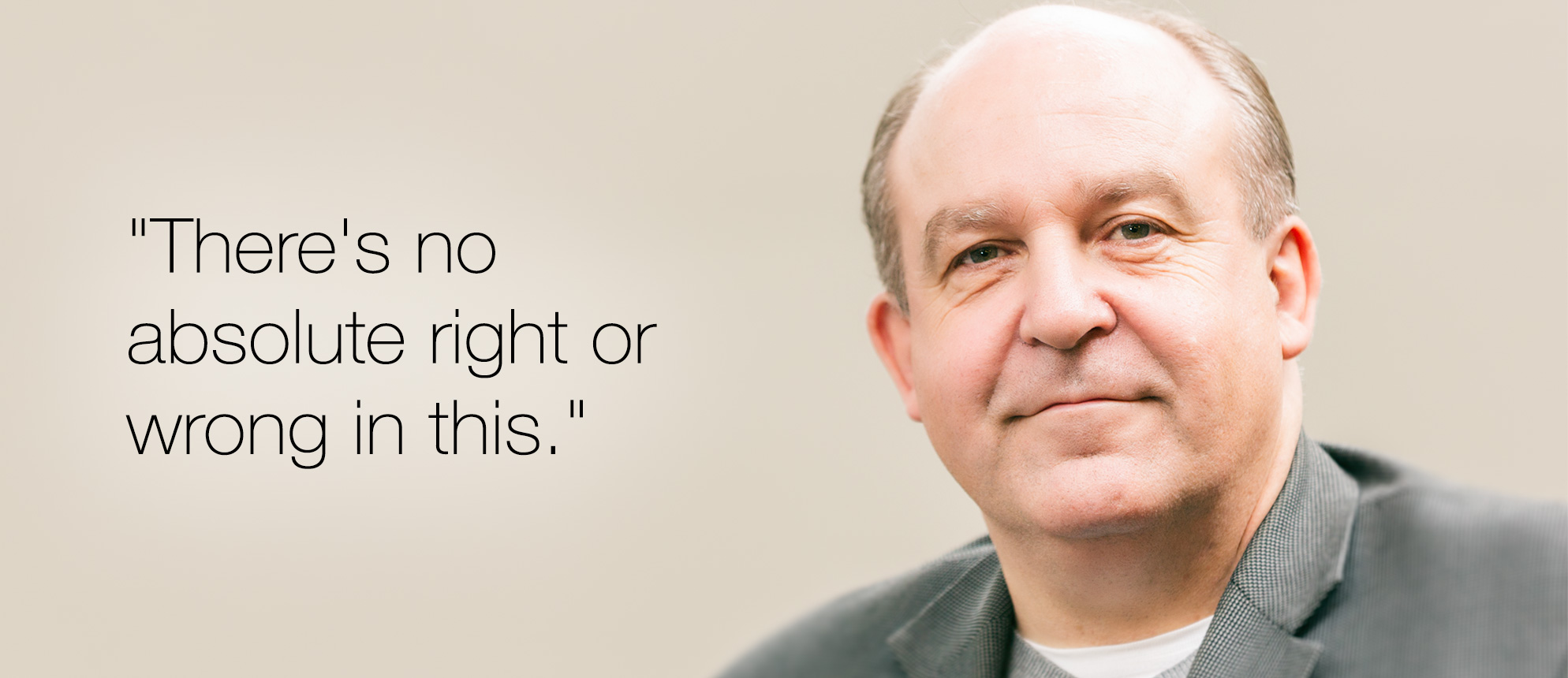- Future Students
- Current Students
- Faculty
- Staff
- Alumni
- Others
UofGH program head helps weigh ethics of European security project

How do governments balance the individual’s right to privacy with the need to protect national security against ever-changing threats? University of Guelph-Humber Justice Studies Program Head Dr. Gary Ellis is at the centre of that ethical debate, and there are no easy answers.
In September, a major four-year research study launched in Europe called the ASGARD Project (it stands for Analysis System for Gathered Raw Data) that brought together 17 European governments with academic institutions, corporations, the European Union and intelligence and law-enforcement agencies with the goal of developing big-data technology solutions to aid in the fight against crime and terrorism.
As part of the project, Dr. Ellis was brought into a five-person ethics review board whose role is to support the ASGARD partners while considering the rights of the individual, with particular attention paid to issues of societal security, privacy and data protection.
Although the details of the project are confidential, Dr. Ellis explained some of the difficult ethical questions facing the governments and law-enforcement agencies who are tasked with protecting their populations.
How did you become involved in the project?
The involvement came through the University of Ulster (in Ireland), with whom we enjoy a partnership. We send University of Guelph-Humber students there, I’ve been a visiting professor there, and (Ulster’s head of the school of criminology politics and social policy) Ruth Fee has been a visiting professor here. She’s a leader on the project and she’s familiar with my background and what we do here at the University of Guelph-Humber, so she reached out and asked if I could be involved. It ties back into my history in law enforcement, security and counter-terrorism, but it also ties into academics. This is an academic exercise first and foremost that will hopefully give law enforcement agencies the tools to do their jobs better.
Sometimes it seems like it’s very difficult for governments to protect both our security and privacy. Why is that?
In free and democratic societies, I think you need this conflict between the individual right to privacy and society’s right to be safe and secure. Like a pendulum swinging, there’s a tension, a conflict between the two issues. I believe that conflict handled responsibly leads to positive change. Unfortunately, we have people who do evil things in the world. When you look at the terrorist activity in Paris or the European Union, there are big things going on. These people use the social-media tools – the ones we use every day and take for granted – for evil. So the question becomes how much of our rights and freedoms and privacy are we willing to sacrifice so the authorities can monitor and identify those who would do evil to all of us? That’s the conflict, and there’s no absolute right or wrong in this. The important thing is putting the checks and balances in place to ensure rights are protected as much as reasonably possible while at the same time allowing the authorities to keep us all safe.
Social media is constantly evolving, so how are law-enforcement agencies able to stay on top of something that changes so rapidly?
It’s a new world. There’s a whole new type of warfare: cyberwarfare. ISIS are masters of social media. They’re sending signals to each other in embedded messages. And law enforcement and intelligence agencies have to be able to counter that. And the problem is we have so much free flow of data around the world, how do you find that needle in the haystack that is the bad one? That’s what these data-mining projects are all about. The average person knows how to use social media, but they don’t know how to trace it or how things are embedded in messages. And this is why intelligence and law-enforcement agencies No. 1 have to be technically adept, but No. 2 need the legal authority to do this. And this project is looking at both of these aspects.
Learn more about Justice Studies at the University of Guelph-Humber.

